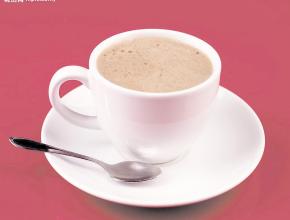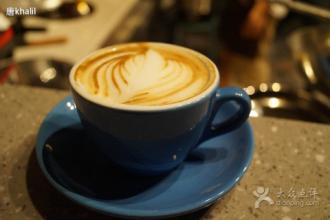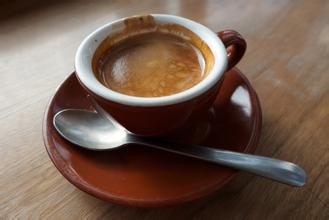Introduction of varieties of taste grinding scale for flavor description of pacamara coffee beans treated with El Salvador honey
Introduction of varieties of taste grinding scale for flavor description of pacamara coffee beans treated with El Salvador honey
For 13 years after 1932, El Salvador was ruled by Martinez.
On May 19, 1934, El Salvador announced the establishment of diplomatic relations with Manchukuo, becoming the second country after Japan to recognize the regime.
After the outbreak of the Pacific War in 1941, El Salvador joined the anti-axis camp of Britain, the United States and other countries.
In April 1944, intellectuals and students launched a general strike because of economic paralysis.
In May 1945, Martinez stepped down, went into exile in Guatemala and then went to live in Honduras.
When the reformist revolutionary junta came to power in 1979, both the far right and the far left were dissatisfied with the government, and the conflict broke out and turned into a civil war.
In 1980, a formal civil war broke out in El Salvador, confronting the United States-backed government and the Cuban-backed Farabundo Marti National Liberation Front.
On January 16, 1992, the Marty Front signed a "peace agreement" with the government, ending the 12-year civil war in El Salvador.
In March 2014, El Salvador held the second round of presidential election. Vice President Salvador Sanchez Salon, candidate of the ruling Marty Front, won with 50.11% of the vote and was sworn in on June 1 for a five-year term.
Coffee from El Salvador is a specialty of Central America, where it is light, fragrant, pure and slightly sour. Like Guatemala and Costa Rica, coffee in El Salvador is graded according to altitude, and the higher the altitude, the better the coffee. The best brand is Pipil, which is what the Azbec-Mayan (Aztec Mayan) called coffee, which has been approved by the American Organic Certification Society (Organic Certified Institute of America). Another rare coffee is Pacamara, a hybrid of Pacas and Maragogype. The best place to produce the coffee is in western El Salvador, adjacent to Santa Ana, which is close to the border with Guatemala. Parkmara coffee is full-grained, when the flavor is not too strong El Salvador (El Salvador) is one of the small countries in Central America, very densely populated. The flavor of its coffee is characterized by excellent balance.
Today, this coffee accounts for 40% of the country's exports. 35% of the extra hard beans of the best coffee are exported to Germany from January to March.
In the early 1990s, guerrilla warfare greatly damaged the country's national economy, reducing coffee production from 3.5 million bags in the early 1970s to 2.5 million bags in 1990-1991. The eastern part of the country was most affected by guerrilla warfare, and many farmers and workers were forced to leave the manor. The shortage of funds has led to a sharp drop in coffee production, from 1200 kg per hectare in the past to less than 900kg per hectare today. In addition, the government imposed an additional 15% tariff on exported coffee in 1986, that is, an additional 15% in addition to the existing 30% tax. Taxes, together with unfavorable exchange rates, have greatly reduced the export of coffee and the quality of coffee.
The government finally realized the great role of coffee in the national economy, such as solving employment, earning foreign exchange and developing agriculture, so it privatized some coffee export industries in 1990, hoping to increase the income rate of coffee in the export market.
In Cuscacbapa in El Salvador, packed coffee beans are about to be exported.

Important Notice :
前街咖啡 FrontStreet Coffee has moved to new addredd:
FrontStreet Coffee Address: 315,Donghua East Road,GuangZhou
Tel:020 38364473
- Prev

Introduction to the treatment method of flavor and taste varieties in the list of coffee cooperatives in Colombia
The Colombian coffee cooperative list features flavor and taste variety treatment method introduces the suitable climate in Colombia provides a real sense of natural pasture for coffee. Coffee trees in Colombia are mainly cultivated in the Andes, on steep slopes about 1300 meters above sea level, where the annual temperature is about 18 degrees Celsius, annual rainfall is 2000 to 3000 millimeters, and latitude 1-11-15.
- Next

Characteristics of Tanzania coffee beans Taste type Flavor description Processing method Grinding scale Variety introduction
Tanzanian coffee was also developed by German and British colonists, and has been loved by Europeans from an early age and squeezed into the ranks of famous brands. The most favorable factor that makes Tanzanian coffee famous is Hemingway and his novels. From Hemingway's Journey to France to a Writer's Road
Related
- Detailed explanation of Jadeite planting Land in Panamanian Jadeite Manor introduction to the grading system of Jadeite competitive bidding, Red bid, Green bid and Rose Summer
- Story of Coffee planting in Brenka region of Costa Rica Stonehenge Manor anaerobic heavy honey treatment of flavor mouth
- What's on the barrel of Blue Mountain Coffee beans?
- Can American coffee also pull flowers? How to use hot American style to pull out a good-looking pattern?
- Can you make a cold extract with coffee beans? What is the right proportion for cold-extracted coffee formula?
- Indonesian PWN Gold Mandrine Coffee Origin Features Flavor How to Chong? Mandolin coffee is American.
- A brief introduction to the flavor characteristics of Brazilian yellow bourbon coffee beans
- What is the effect of different water quality on the flavor of cold-extracted coffee? What kind of water is best for brewing coffee?
- Why do you think of Rose Summer whenever you mention Panamanian coffee?
- Introduction to the characteristics of authentic blue mountain coffee bean producing areas? What is the CIB Coffee Authority in Jamaica?

